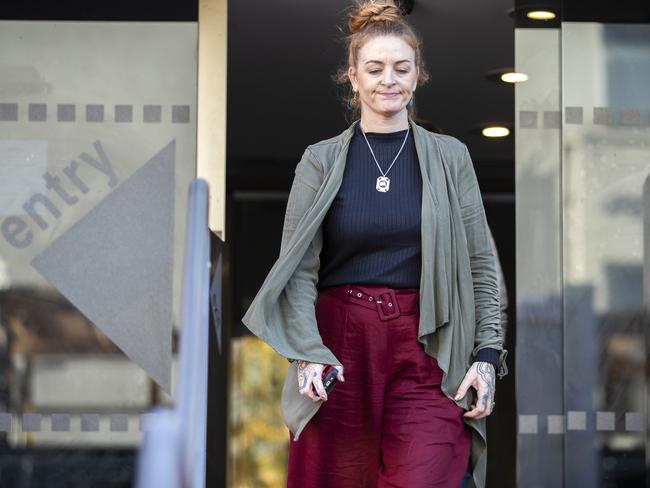Coroner criticises ‘Jari’s Law’ and condemns Elise Archer inquest intervention as ‘concerning’
Coroner Simon Cooper has urged authorities to reverse “Jari’s Law”, while also robustly criticising a coronial intervention last year by former Attorney-General Elise Archer. His comments >

Police & Courts
Don't miss out on the headlines from Police & Courts. Followed categories will be added to My News.
Coroner Simon Cooper has come out swinging against a new law he says will overwhelm Tasmania’s inquest system – while also robustly criticising a “particularly concerning” coronial intervention last year by former Attorney-General Elise Archer.
Mr Cooper’s strong words came on Monday in his published findings into the death of Huon Valley man Jari Wise, who died in 2020 after he was struck by a car driven by his on-off girlfriend Melissa Oates.
The coroner said his findings were the same as those he’d made before he was compelled by Ms Archer to hold an inquest into the case, while slamming the former Attorney-General’s actions as “particularly concerning”.
In response to Mr Cooper’s comments, Ms Archer has told the Mercury she stands by the decision she made.
Mr Cooper said after Mr Wise’s death, he’d reached a view “there would be no purpose served” by holding an inquest, as it would not unearth any additional information.
Mr Cooper said at a Supreme Court of Tasmania appeal hearing, Ms Archer’s legal team argued in support of his decision to not hold an inquest, with Justice Michael Brett ultimately upholding the coroner’s decision.
But he said Ms Archer made an “extraordinary” move fewer than three hours after the judgment was handed down – after giving “no hint” she would do so, and after her lawyers had argued for the coroner’s case.

Mr Cooper said instead of taking time to consider the court’s decision, take legal advice and formulate “adequate reasons for exercising” her powers under the Coroners Act, Ms Archer only gave “brief, generic reasons”.
He said other than the “concerning issue” of Ms Archer’s decision overruling Justice Brett’s decision, he noted she didn’t exercise her powers in the 10 months following the hearing, but waited until the judge had written a judgment “unnecessarily”.
Mr Cooper said this also had the effect of delaying the inquest process.
“Ultimately, the exercise of the power resulted in no positive outcome for the administration of justice by the holding of this inquest,” he said in his findings.
“Further, it had the effect of publicly undermining the role of the Supreme Court.”
Ms Archer said she stood by her decision, saying some evidence had possibly emerged after the decision not to hold an inquest was first made.
“This was in no way a reflection on the police investigation or the coroner, but to give the deceased’s family satisfaction that every avenue available had been exhausted,” she said.
Mr Cooper has also urged the “appropriate authorities” to take steps to reverse a legislative amendment known as “Jari’s Law”.

Jari’s Law amends section 24 of the Coroner Act, by compelling a coroner to hold a public inquest if the coroner suspected that family violence may have contributed to a person’s death.
The law has passed both Houses of Parliament, but is yet to be proclaimed.
“Early estimates indicate that Tasmanian coroners will, as a result of the amendment, be required to hold at least double the number of public inquests,” Mr Cooper said in his findings.
“The effect of this upon an already strained coronial system will be to significantly delay all inquests, thereby increasing the grief and trauma of many families in our community.”
He said coroners would also be required to hold public inquests into many deaths where “no additional evidence is to be gained” and would at times result in the “ventilation of sensitive information” about a deceased person “for no good reason at all”.
“I urge the appropriate authorities to consider taking steps to reverse this most unfortunate exercise in ‘law reform’,” Mr Cooper said.
Ms Archer said she also stood by Jari’s Law, which she introduced into parliament last year - adding the state government needed to adequately resource the Coronial Division if there was an increase in workload.





